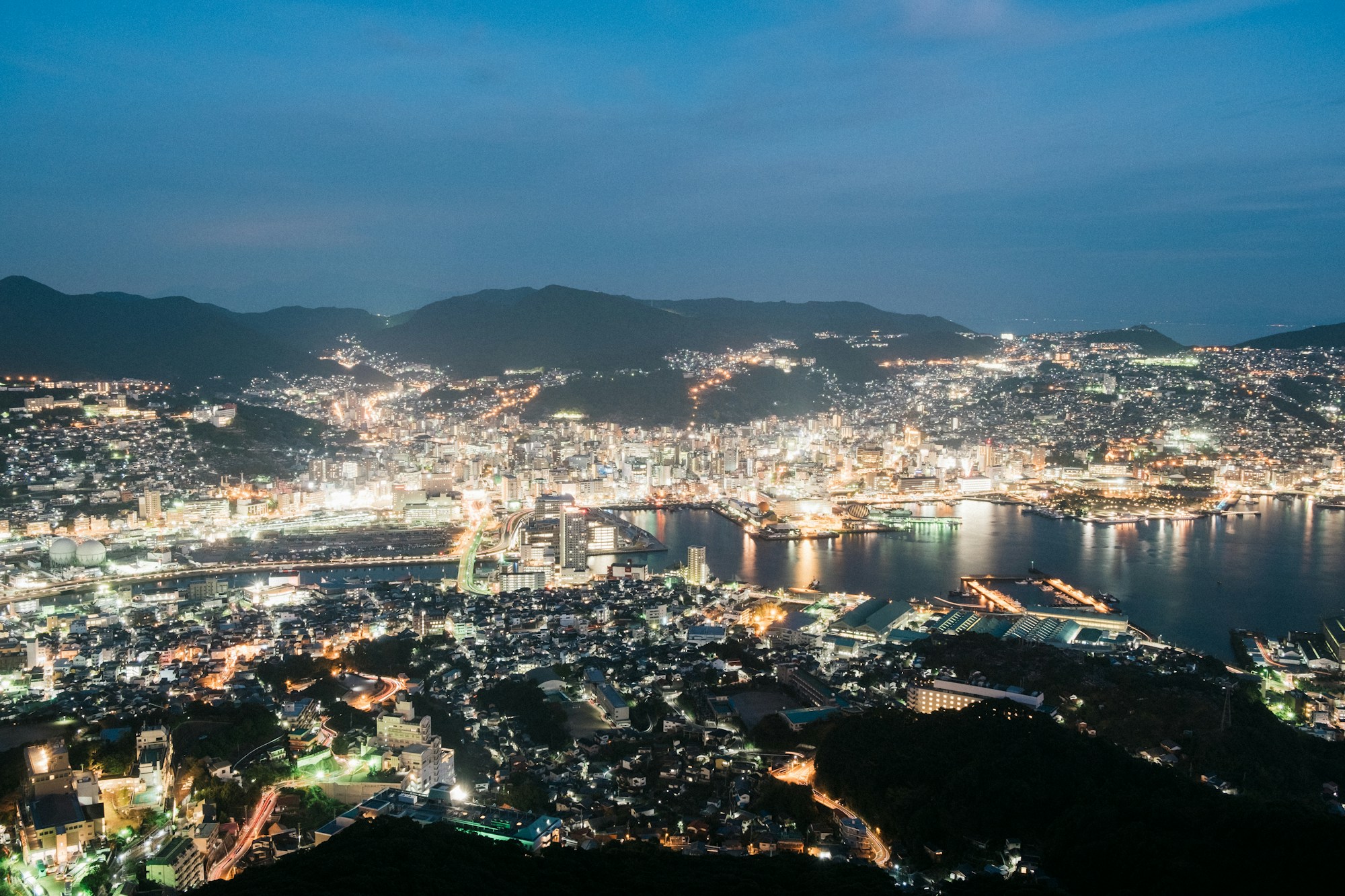Nagasaki: Culture & Traditions - Local History, Customs, Festivals & Celebrations

Nagasaki: Culture & Traditions
Nagasaki is a city steeped in rich history, vibrant customs, and fascinating traditions. Located on the western coast of Kyushu Island in Japan, this mesmerizing city offers visitors a captivating blend of Japanese and Western influences. From its tragic past as the site of the atomic bombing during World War II to its flourishing cultural scene, Nagasaki provides a unique travel experience. Let's explore the local history, customs, festivals, and celebrations that make Nagasaki a must-visit destination!
Local History
Nagasaki has a long and storied past that significantly impacted its cultural identity. As one of the few ports open to foreign trade during Japan's isolation period, the city became an essential hub for international exchange. The arrival of Portuguese, Dutch, Chinese, and other foreign traders left a lasting impression on Nagasaki's architecture, cuisine, and religious practices. During World War II, Nagasaki endured the tragic devastation of an atomic bombing on August 9, 1945. Today, the city serves as a powerful symbol of peace and reconciliation, reminding visitors of the importance of overcoming adversity.
Customs
Nagasaki is known for its warm and welcoming culture. The people of Nagasaki are proud of their city's cultural heritage and are often eager to share it with visitors. Here are a few customs to be mindful of when visiting:
- Bowing: When meeting someone, a polite bow is customary as a sign of respect.
- Shoes off: In many homes, traditional ryokans, and some restaurants, it is customary to remove your shoes before entering.
- Etiquette in temples: When visiting temples or shrines, show reverence by following the proper etiquette, such as bowing and washing your hands before entering.
- Gift-giving: It is considered polite to bring a small gift when invited to someone's home or when meeting someone for the first time.
Festivals & Celebrations
Nagasaki is renowned for its vibrant festivals and celebrations, where ancient traditions come alive. Here are a few of the most notable events:
- Nagasaki Kunchi Festival: Held annually in October, this festival showcases Nagasaki's unique mix of Japanese and Chinese cultures through colorful parades, music, and traditional dances.
- Nagasaki Lantern Festival: Taking place in February, this festival is a mesmerizing display of thousands of lanterns lighting up the city streets in celebration of the Lunar New Year.
- Atomic Bomb Memorial Ceremony: Held every year on August 9th at the Peace Park, this solemn ceremony pays tribute to the victims of the atomic bombing and promotes peace and nuclear disarmament.
- Chinatown Chinese New Year: Nagasaki's Chinatown comes alive during the Chinese New Year, with colorful lion and dragon dances, traditional music, and mouthwatering street food.
Nagasaki's festivals and celebrations truly offer a window into the city's vibrant cultural tapestry, providing visitors with unforgettable experiences.
Explore Nagasaki's Cultural Tapestry
From the magnificence of Nagasaki's historic churches and temples to the vibrant streets of Chinatown, there is so much to explore in this culturally rich city. Don't miss these must-visit attractions:
- Glover Garden: A hillside park showcasing western-style homes and breathtaking views of the city.
- Dejima: Once an artificial island, Dejima was a Dutch trade post and offers insights into Nagasaki's international connections.
- Peace Park: A poignant memorial park dedicated to promoting peace and remembering the victims of the atomic bombing.
- Sofukuji Temple: One of Japan's oldest Chinese temples, known for its intricately designed architecture and serene atmosphere.
- Oura Cathedral: A stunning Catholic church, designated as a national treasure, blending European and Japanese architectural styles.
- Nagasaki Chinatown: A vibrant neighborhood filled with Chinese shops, restaurants, and cultural attractions.
Immerse yourself in Nagasaki's cultural tapestry by visiting these iconic landmarks and experiencing the city's unique fusion of cultures.
Conclusion
Nagasaki's captivating culture and traditions make it a destination unlike any other. Its remarkable history, warm customs, vibrant festivals, and breathtaking attractions provide visitors with a deep appreciation for the city's rich heritage. From paying homage to the past to celebrating the present, Nagasaki offers a truly unforgettable travel experience.
